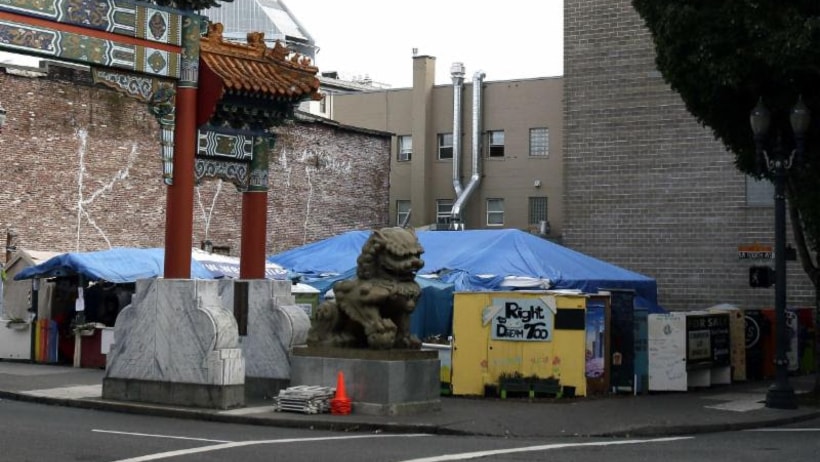Oasis Songs: Musings from Rav D
Friday, July 26, 2019 / 23 Tamuz 5779
Summary: Rabbi Kosak speaks about an unconscionable attack that took place early this morning on our city streets, and updates the community on our Tiny House efforts.
At 4:37 am this morning, Portland Police responded to a report of an assault in the 400 block of Northwest 13th Avenue. A woman who had been sleeping on the street was attacked by a man, who then fled the scene. She was hospitalized. While details of the crime are still sparse, the incident highlights our ongoing crisis of affordable housing, and the dangers to which the houseless are routinely exposed. Here was an unaggravated assault.

Our community needs a wide-ranging number of responses to address homelessness. Please note—responses—not solutions. The causes of houselessness are many. Increasing numbers of people around the country are finding it impossible to secure a safe roof over their heads. That means even in cities with far-reaching strategies to combat this issue, such as Los Angeles, the total number of the homeless can remain stable or go up—even as that city rushes to create affordable housing.
We shouldn’t look at this as a failure of those strategies. More people have homes who previously didn’t, and that is a success. Yet the larger global conditions which give rise to unaffordable shelter mean that we can anticipate increasing numbers of people who are forced to live in tents, cardboard boxes and in doorways. The shanty towns and slums of the third world are now a first world problem and we can no longer turn a blind eye to what can only be described as a plague. And like a plague, everyone ends up being impacted–business owners, tourists, residents, the homeless themselves. The boat rises or sinks for all.
America has massive structural changes it needs to address if it wishes to solve the homelessness crisis. Education. Broken Families. Cycles of poverty and violence. Wealth gaps. Livable wages. Pathways to greater upward mobility. Accessible health care and mental health care. All of these are contributing factors. Those challenges can’t readily be solved by a mid-sized city such as Portland or even far wealthier communities. Not in a hodge podge manner, in any case.
Yet as we Jews all know, “lo alekha hamlakha ligmor,” we don’t need to finish the task, but we are still called to take action. This Sunday from 11am-3pm, there will be another opportunity to help work on one of our tiny homes being built in the upper parking lot. I want to bring this to your attention, because many of us will be participating at the NewCAJE educational conference being held at Reed College. As a result, I won’t be able to help in this week’s build, so I hope you will be able to.
In addition to the tiny home projects occurring at the Neveh Shalom upper parking lot, work will take place at our second build site, located on Capitol Highway across from the Federation building from 10-4.
As we have gained competency in the many skills needed to build affordable housing for the very underemployed, and as I have gained more confidence in what is involved, we are just beginning to reach out to other faith communities in town. I am still coordinating a meeting time with some Christian groups who are equally committed to taking action. I have to believe that if everyone does a little, a dent can be made in even the most intractable of problems.
What is clear is that Portland shouldn’t be a town where a woman who has no where else to sleep but on the street gets attached. And when she does get attacked, Portland should be a town that aggressively seeks safe and affordable shelter for her and others. What happened this morning can’t be ok.
Not on our watch.
Shabbat shalom,
Rav D
Shabbat Table Talk
- In the 15th and 16th century–and beyond–England housed its mentally ill in what they called “lunatic asylums.” The conditions there were dreadful, but it was understood that the Crown had some minimal responsibility to care for them. How would you compare the English solution to contemporary America’s answer of neglect and turning a blind eye? Which is better? Why?
- What will you do to address homelessness?
If you’d like to continue this discussion, follow this link to CNS’s Facebook page to share your own perspectives on the topics raised in this week’s Oasis Songs. Comments will be moderated as necessary.



